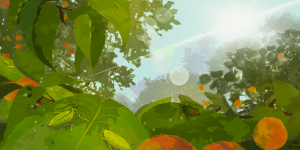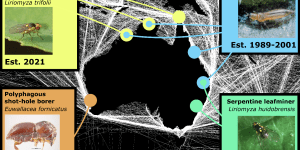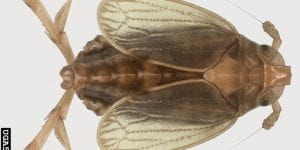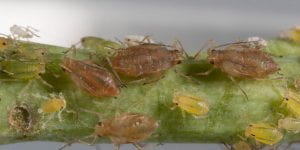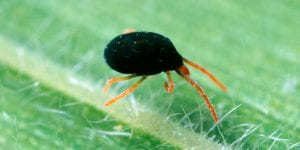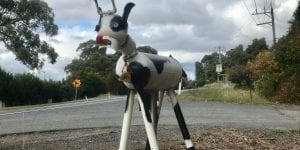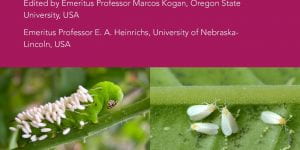Tag: Agriculture
-
Breaking Bad bugs: Testing potential biocontrol agents for pesticide tolerance
I have a passion for playing mad scientist with pesticides, all in the name of making agricultural pest control safer and more sustainable. If you’re fond of growing roses, you’re probably familiar with the frustrating critters that invade them in your garden. The critters, in this case aphids, are unfortunately fond of your roses, along […] -
New DECRA projects coming soon! 2/2
Molecular biosecurity: Genomic databanks for managing invasive pests – Tom Schmidt Insect pests frequently establish invasions in Australia or are detected as incursions at borders, but little is often known about where they’ve come from or how best to manage them now they are here. One way to investigate these questions is to sequence and […]blogs.unimelb.edu.au/pearg/2022/09/27/new-decra-projects-coming-soon-2-2
-
A self-spreading bacterial infection in an agricultural pest that stops the pest from spreading plant viruses
Words: Ary Hoffmann Banner image: Natasha Wright, licensed under Creative Commons Attribution 3.0 License. In Asia, one of the most damaging pests of rise is the brown planthopper, Nilaparvata lugens. This pest damages plants directly but more importantly it acts as a vector for damaging plant viruses, including the “rice ragged stunt virus” (RRSV). This […] -
Finished, but not yet free
Words by Samantha Ward & Marianne Coquilleau Illustrations by Marianne Coquilleau Photographs by Samantha Ward UPDATE – Samantha & Marianne have been interviewed on radio stations 2SER and The Pulse about their journey LINK 2SER || LINK The Pulse Concluding the postgraduate journey Covid-19 has shaken up the world as we know it. Everyone has […]blogs.unimelb.edu.au/pearg/2020/09/08/finished-but-not-yet-free
-
Targeting the bacteria inside insects for improved pest management
This article was first published on Pursuit. Read the original article Francesca Noakes and Professor Ary Hoffmann Any home gardener knows of the long-running battle against insect pests. The little critters that sneak into your garden beds and strip leaves are irritating among prized kale, but for farmers these tiny pests can have devastating economic […] -
New Pursuit article – Have resistance, will travel
This article was first published on Pursuit. Read the original article here. Authors: Dr Nancy Endersby-Harshman, Dr Qiong Yang, Dr Tom Schmidt and Professor Ary Hoffmann Around the world, pest insects – like mosquitoes – often become resistant to the insecticides meant to control them, causing problems for agriculture and public health. Resistance in multiple populations […]blogs.unimelb.edu.au/pearg/2020/05/28/new-pursuit-article-have-resistance-will-travel
-
Moshe Jasper: Humans of BioSciences
Meet Moshe Jasper, Research Assistant in PEARG. Moshe shares what inspired him to become a scientist and what he wishes he had known when he was an undergraduate student. What is it like to work in PEARG ? The Pest & Environmental Adaptation Research Group undertakes research on adaptation of organisms (particularly invertebrates) to environmental […]blogs.unimelb.edu.au/pearg/2020/04/24/moshe-jasper-humans-of-biosciences
-
What can cattle teach us about evolution?
Ary Hoffmann Charles Darwin in his On the Origin of Species used data from domestic animals to argue for the power of natural selection in changing phenotypes. These included examples from birds and dogs as well as livestock. The latter having been selected across many years to increase productive yields such as milk and meat. […]blogs.unimelb.edu.au/pearg/2020/04/17/what-can-cattle-teach-us-about-evolution
-
Looking for a funded PhD or MPhil scholarship?
The Australian Grains Pest Innovation Program (AGPIP) is offering 4 fully funded scholarships at the University of Melbourne for potential PhD or MPhil students interested in cutting-edge science, environmental sustainability and agricultural innovation. AGPIP is a collaboration between the PEARG and cesar. The program is aimed at improving the sustainability of invertebrate pest management practices […]blogs.unimelb.edu.au/pearg/2020/04/06/looking-for-a-phd-or-mphil-scholarship
-
New publication: Ecological impacts of pesticides and their mitigation within IPM systems
Pest control is recognised as an important part of crop production. Against a background of increasing concern for chemical impacts on the environment, Integrated Pest Management programs have been developed where chemical application and natural enemy enhancement work together to maintain productivity with reduced environmental impact. Such programs require good science, general theory and strong […]
Number of posts found: 21
